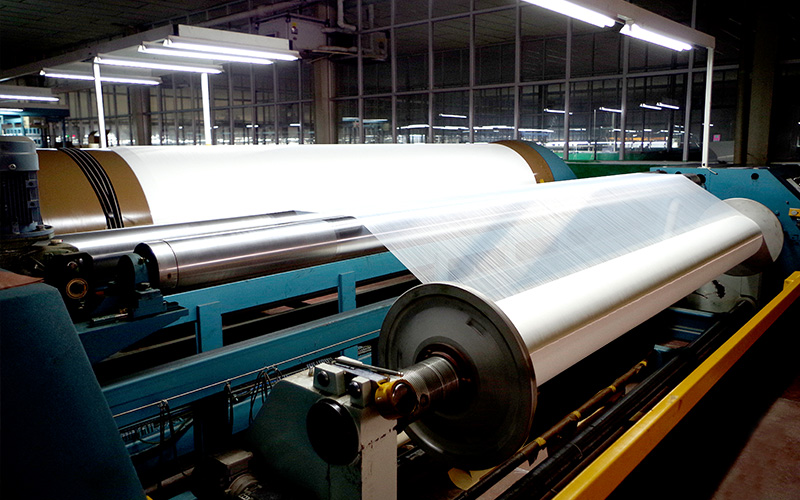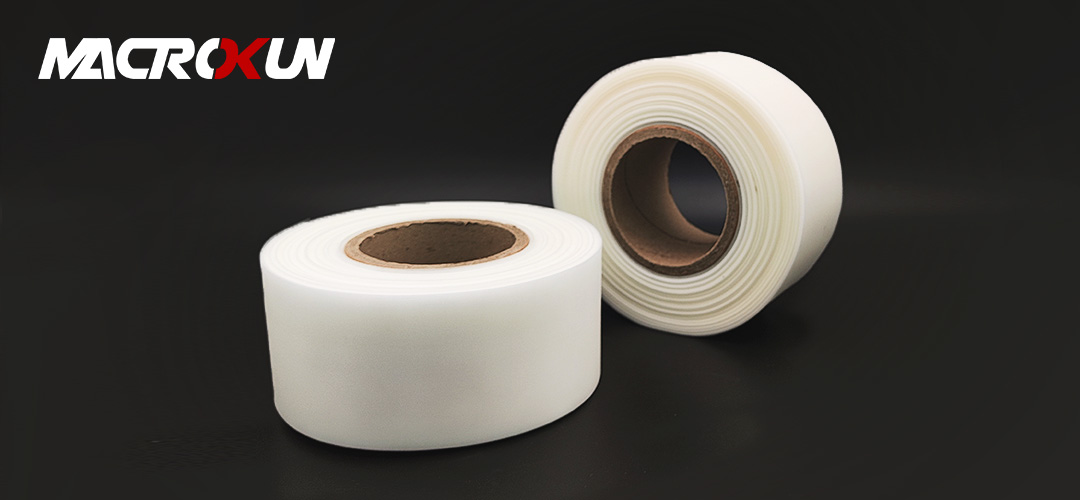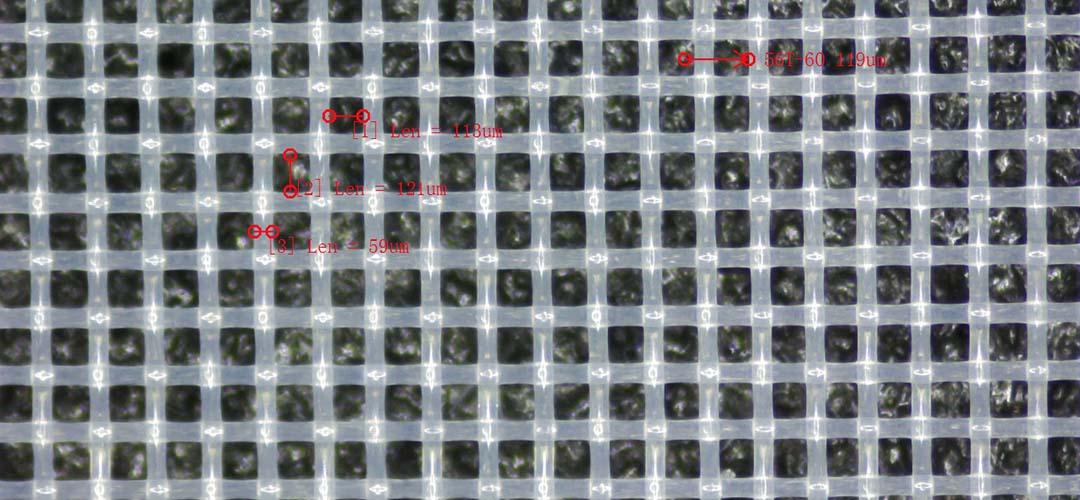In the realm of filtration technology, high mesh nylon filters have emerged as a pivotal component across various industries, including food and beverage, pharmaceuticals, and water treatment. Understanding the science behind these filters is essential for appreciating their role in ensuring product purity and operational efficiency. High mesh nylon filters are designed with a fine mesh structure that allows for the effective separation of particles from liquids and gases, making them indispensable in applications where cleanliness and precision are paramount.
The fundamental principle of filtration involves the physical separation of solid particles from fluids. High mesh nylon filters utilize a network of interwoven nylon fibers, which create a barrier that captures contaminants while allowing the desired fluid to pass through. This unique design not only enhances the filter’s efficiency but also contributes to its durability. Nylon, known for its strength and resistance to various chemicals, ensures that these filters can withstand harsh operating conditions without compromising their structural integrity.
Moreover, the mesh size of these filters plays a critical role in determining their effectiveness. A higher mesh count translates to smaller openings, which can trap finer particles. This characteristic is particularly beneficial in industries where even minute contaminants can lead to significant quality issues. For instance, in the pharmaceutical sector, the presence of particulate matter in a solution can affect the efficacy of a drug, making high mesh nylon filters an essential tool for maintaining stringent quality control standards.
Transitioning from the technical aspects, it is important to consider the practical implications of using high mesh nylon filters. Their versatility allows them to be employed in various filtration processes, including pre-filtration, final filtration, and even in applications requiring sterile filtration. This adaptability not only streamlines operations but also reduces the need for multiple filtration systems, thereby optimizing resource utilization. As industries increasingly focus on efficiency and cost-effectiveness, the adoption of high mesh nylon filters is likely to rise.
In addition to their functional benefits, high mesh nylon filters also contribute to sustainability efforts. By effectively removing contaminants, these filters help reduce waste and minimize the environmental impact of industrial processes. For example, in water treatment facilities, the use of high mesh nylon filters can significantly improve the quality of effluent, ensuring that discharged water meets regulatory standards. This not only protects ecosystems but also enhances the reputation of companies committed to environmental stewardship.

Furthermore, the maintenance and longevity of high mesh nylon filters are noteworthy. Unlike traditional filters that may require frequent replacements, high mesh nylon filters can often be cleaned and reused, which not only reduces operational costs but also lessens the environmental footprint associated with filter disposal. This aspect is particularly appealing to businesses aiming to implement sustainable practices while maintaining high operational standards.
In conclusion, high mesh nylon filters represent a sophisticated solution to the challenges of filtration across various industries. Their ability to effectively separate contaminants, coupled with their durability and versatility, makes them an invaluable asset in maintaining product integrity and operational efficiency. As industries continue to evolve and prioritize quality and sustainability, the role of high mesh nylon filters will undoubtedly become even more significant, paving the way for innovations in filtration technology that meet the demands of a rapidly changing world.
Nylon has emerged as a preferred material for high mesh filters, primarily due to its unique combination of properties that cater to a variety of industrial applications. One of the most significant advantages of nylon is its exceptional strength-to-weight ratio. This characteristic allows nylon filters to maintain structural integrity under pressure while remaining lightweight, which is crucial in applications where ease of handling and installation are paramount. Furthermore, nylon exhibits remarkable flexibility, enabling it to conform to various shapes and sizes without compromising its filtering capabilities. This adaptability makes nylon filters suitable for diverse environments, from food processing to chemical filtration.
In addition to its mechanical properties, nylon is also known for its excellent chemical resistance. This feature is particularly important in industries where filters are exposed to aggressive substances. Nylon can withstand exposure to a wide range of chemicals, including oils, greases, and solvents, without degrading or losing its filtering efficiency. This resilience not only extends the lifespan of the filters but also reduces the frequency of replacements, leading to cost savings for businesses. Moreover, the ability of nylon to maintain its performance in harsh conditions makes it a reliable choice for high mesh filters used in demanding applications.
Another critical aspect of nylon is its thermal stability. High-quality nylon can endure elevated temperatures without losing its structural integrity, which is essential in processes that involve heat. This thermal resilience ensures that nylon filters can operate effectively in environments where other materials might fail, thus providing a consistent and reliable filtration solution. Additionally, the ability to withstand temperature fluctuations without warping or degrading further enhances the versatility of nylon filters across various industries.

The porosity of nylon also plays a vital role in its effectiveness as a filtering medium. High mesh nylon filters are designed with a specific mesh size that allows for optimal flow rates while effectively capturing particles of varying sizes. This balance between permeability and filtration efficiency is crucial in applications where maintaining fluid dynamics is as important as removing contaminants. The precise engineering of nylon mesh ensures that it can filter out unwanted particles while allowing the desired substances to pass through, thereby enhancing overall process efficiency.
Moreover, nylon’s inherent resistance to microbial growth adds another layer of advantage, particularly in industries such as pharmaceuticals and food processing. The non-porous nature of nylon inhibits the growth of bacteria and other microorganisms, ensuring that the filtered products remain uncontaminated. This property not only ensures compliance with health and safety regulations but also enhances the quality of the final product, making nylon filters a preferred choice in sensitive applications.
In conclusion, the material properties of nylon make it an ideal candidate for high mesh filters across various industries. Its strength, flexibility, chemical resistance, thermal stability, and low microbial growth potential collectively contribute to its effectiveness and reliability. As industries continue to seek efficient and durable filtration solutions, the science behind high mesh nylon filters underscores the importance of selecting the right materials to meet specific operational needs. By leveraging the unique properties of nylon, businesses can enhance their filtration processes, ultimately leading to improved product quality and operational efficiency.
High mesh nylon filters have emerged as essential components across a variety of industries, owing to their unique properties and versatility. These filters, characterized by their fine mesh structure, are designed to effectively separate particles from liquids and gases, making them invaluable in applications where purity and precision are paramount. In the food and beverage industry, for instance, high mesh nylon filters play a critical role in ensuring product quality. They are commonly used in the filtration of juices, oils, and other liquids, where they help remove impurities and particulates that could compromise flavor or safety. The ability of these filters to withstand high temperatures and corrosive substances further enhances their utility in processing environments, where hygiene and compliance with health regulations are non-negotiable.

Transitioning to the pharmaceutical sector, the importance of high mesh nylon filters becomes even more pronounced. In this industry, the need for sterile and contaminant-free products is crucial. High mesh nylon filters are employed in the filtration of active pharmaceutical ingredients (APIs) and other solutions, ensuring that any particulate matter is effectively removed before the final product reaches consumers. Their ability to maintain structural integrity under various conditions makes them ideal for applications involving aggressive solvents and high-pressure systems. Moreover, the ease of cleaning and reusability of these filters contributes to cost-effectiveness, allowing pharmaceutical companies to maintain stringent quality control without incurring excessive operational costs.
In the automotive industry, high mesh nylon filters are utilized in fuel and oil filtration systems. These filters help to ensure that engines operate efficiently by preventing contaminants from entering critical components. The durability of nylon, combined with its resistance to various chemicals, makes it an ideal material for filters that must endure harsh operating conditions. As vehicles become increasingly sophisticated, the demand for high-performance filtration solutions continues to grow, positioning high mesh nylon filters as a key player in enhancing engine longevity and performance.
Furthermore, the environmental sector has also recognized the value of high mesh nylon filters. In water treatment facilities, these filters are employed to remove suspended solids and other contaminants from water sources, thereby improving water quality for both industrial and municipal applications. The ability to customize mesh sizes allows for targeted filtration, which is particularly beneficial in addressing specific environmental challenges. As regulations surrounding water quality become more stringent, the role of high mesh nylon filters in ensuring compliance and promoting sustainability is likely to expand.
In the realm of electronics, high mesh nylon filters are increasingly being used in the production of semiconductors and other sensitive components. The filtration of chemicals and solvents used in manufacturing processes is critical to preventing defects and ensuring product reliability. The precision offered by high mesh nylon filters helps to maintain the integrity of these processes, thereby supporting the rapid advancement of technology in this sector.
In conclusion, the applications of high mesh nylon filters span a wide array of industries, each benefiting from their unique properties and capabilities. As industries continue to evolve and face new challenges, the demand for effective filtration solutions will only increase. High mesh nylon filters, with their combination of durability, efficiency, and versatility, are well-positioned to meet these demands, ensuring that they remain a vital component in the pursuit of quality and excellence across various sectors.
Pre: Best Practices for Using Nylon Filter Mesh in Water Systems

MACROKUN has established long-term and stable cooperative relations with many transportation companies such as China Post, DHL, FEDEX, USPS, UPS, etc. Of course, MACROKUN can also provide air and sea transportation. The powerful logistics system enables all MACROKUN'S Printing Mesh, Filter Mesh and Filter Bags and so on to be easily and efficiently transported to any place. For quotes and inquiries, please email our sales team.





